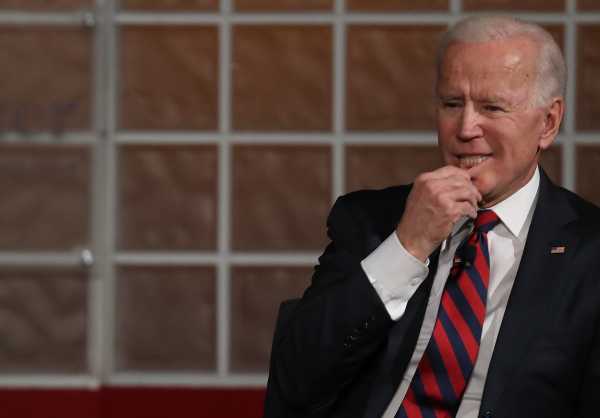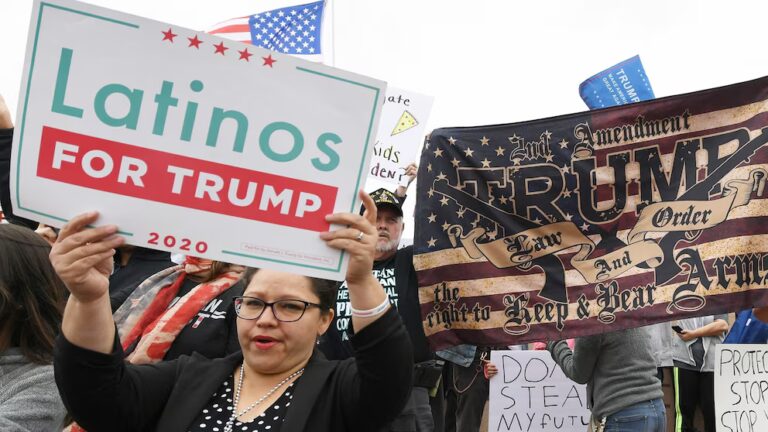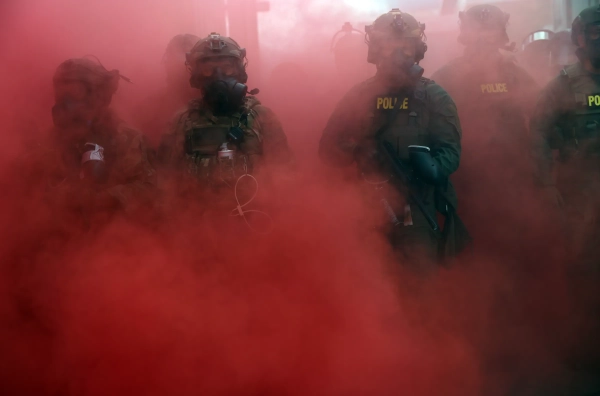
What do you know, former Vice President Joe Biden is leading another 2020 Democratic presidential primary poll with roughly 30 percent of the vote.
The story of the 2020 election polling so far is how little the polling has changed. Here is the latest national primary survey from Quinnipiac, released on Thursday:
- Joe Biden: 29 percent
- Bernie Sanders: 19 percent
- Beto O’Rourke: 12 percent
- Kamala Harris: 8 percent
- Elizabeth Warren: 4 percent
- Pete Buttigieg: 4 percent
- Cory Booker: 2 percent
- Amy Klobuchar: 2 percent
- Julian Castro: 1 percent
- John Hickenlooper: 1 percent
The big news out of this poll is that South Bend Mayor Pete Buttigieg is hitting a new polling high of … 4 percent. That should tell you how monotonous the Democratic primary polling has really been. This chart from Real Clear Politics reinforces the tedium:

The next time a new national 2020 poll comes out, you can probably fill in the blanks yourself: Biden at 30 percent or so, Sanders trailing 5-10 points behind him, O’Rourke and Harris both hanging around at 10 percent, Warren sitting at 5 percent-ish, and then a crowd of Booker, Buttigieg, Klobuchar, Castro, and Kirsten Gillibrand with a few percentage points each.
The story has barely changed all year. The big unknown is how durable Biden’s stubbornly consistent lead really is — and we won’t know the answer to that until he decides whether or not to run. And even then, things may not really change until the first round of debates, when the public finally turns its full attention to the presidential campaign.
The Iowa and New Hampshire 2020 polling landscape, explained
Maybe you’d argue national polls don’t really matter (and you’d be right). We don’t have a national primary election. We have a very deliberate schedule of caucuses and primaries, and the narrative and momentum built out of the early contests could mean quite a lot in a crowded field.
But in a recent Des Moines Register poll, the gold standard in the first caucus state, the results look only a little different than the national polls:
- Biden: 27 percent
- Sanders: 25 percent
- Warren: 9 percent
- Harris: 7 percent
- O’Rourke: 5 percent
- Booker: 3 percent
- Klobuchar: 3 percent
Warren overperforms her national polling a little bit in Iowa; O’Rourke (who hadn’t actually announced when this survey was taken) underperforms. This tracks with what David Binder, who polled for Barack Obama in 2008 and 2012, put out in his new Iowa survey this week.
That most recent Iowa poll does have a bit of bad news for Biden: His lead has actually diminished from 37 percent in September last year to just 25 percent now. He’s losing ground to Sanders and, in Binder’s most recent poll, Buttigieg was all the way up to 6 percent. Of course, Biden hasn’t yet been traveling to Iowa with regularity like the other contenders, and voters there might be taking an interest in the politicians they’ve actually met and heard from.
Warren, at 8 percent, was still showing a little bit better in Iowa than in national surveys; O’Rourke, down at 6 percent, still didn’t do quite as well in the Hawkeye State. The Binder poll was a comparatively good survey for Booker and Klobuchar, who both hit 6 percent.
Moving to the second state on the calendar, it’s been a while since we’ve seen a New Hampshire poll. But the twist there is that Sanders seems to fare better against Biden than he does in national polls. That makes sense, given New Hampshire is next door to Sanders’s home state of Vermont. He also trounced Hillary Clinton there in the 2016 primary.

Another notable finding is Elizabeth Warren, again, looking stronger in an early primary state than in the national polls. The Massachusetts senator was one of the first major candidates to announce and she has kept up a relentless travel schedule. On the other hand, Warren is still trailing Harris in her own neighborhood, considering the substantial overlap between the Massachusetts and New Hampshire media markets. So maybe that number isn’t quite as good as it seems.
O’Rourke is also below his national numbers in New Hampshire, though all of these surveys were taken before he announced his candidacy.
Taken together, the polling landscape in Iowa and New Hampshire largely aligns with what we’ve seen in the national polls: Biden and Sanders are in a class of their own, while some mix of Harris, O’Rourke, and Warren makes up the second tier. They’re followed by Booker, Klobuchar, and maybe now Buttigieg, who could fight their way up the hierarchy.
We have a long way to go, of course. And we’re still waiting on quality Nevada and South Carolina polls, to give us some idea of how the electorate is looking in the next two states on the 2020 calendar.
There is that one warning sign for Biden in Binder’s survey, as his support appears to be deteriorating a bit even as he holds onto the lead. That brings us to the real lesson to be learned from the early 2020 polling.
This is not a real race until Joe Biden gets in or gets out
Biden is the shadow hanging over the 2020 Democratic primary. He is polling like a frontrunner, but what we don’t yet know is how solid that support really is. Surveys at this point in the campaign reflect name recognition as much as anything else, and Biden is the best-known potential candidate, along with Sanders.
This is how Vox’s Li Zhou summarized the state of Biden’s polling earlier this month:
To state the overly obvious, we simply can’t be sure whether Biden would maintain his polling advantage until he actually enters the race and starts facing more scrutiny and the attacks from his competitors that come with a real candidacy. Hillary Clinton is the classic example of a politician enjoying soaring approval when they aren’t perceived as an active office-seeker and seeing that sky-high favorability rapidly tumble once they enter the arena.
The same could prove true for Biden. Then again, it might not: He’s already seen some tough media coverage but largely held his standing in the polls, and there are interesting anecdotes from focus groups suggesting policy-based attacks don’t hurt him as much as you might think, considering his more centrist profile in a party increasingly moving to the left.
The real wild card is: What if Biden doesn’t run? Where does his 30 percent slice of the primary pie go? Zhou also explored this question recently, and the answer was … nobody knows. Some surveys show a lot of Biden voters moving to Sanders. Other pollsters think Harris would take up the mainstream Democratic mantle, contrasted with Sanders’s lefty insurgency, and become the favorite. Or maybe there isn’t one beneficiary and the effect of Biden foregoing is diffused among many candidates.
This is a long way of saying the reason the 2020 polling seems so maddeningly unwavering is the biggest domino in the primary campaign hasn’t fallen yet: Is Joe Biden going to run or not?
Only then will we start to get a better picture of the race for the Democratic nomination.
Sourse: vox.com






